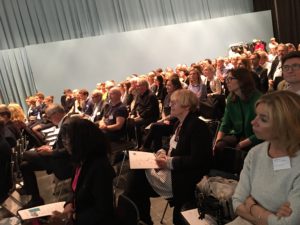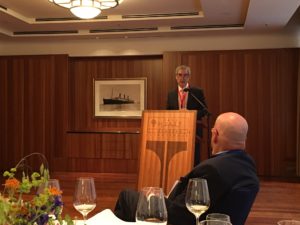(Original Swedish post published 10 June.)
The weeks speed by and with the graduation ceremonies past, the semester is nearing its end. But there’s still plenty going on at the University and summer holidays will have to wait until after Almedalen Week in July. We have a busy programme at Campus Gotland that week. Do take a look at the programme (in Swedish) – even if you’re not there, you will be able to follow many of our seminars online.
Last week I participated in the Hamburg Transnational University Leaders Council. About fifty of us heads of universities from around the world were there to spend a few days discussing Differentiation in the post-secondary sector: A response to massification, competition, and the emergence of the global knowledge economy. The discussion started out from a number of country analyses, which were presented in a report, and presentations from six different countries. It’s valuable to take stock of the international environment and gain insight into the education systems in Russia, India, Chile, Australia, Ghana, France from colleagues in this way. While some challenges are shared, the systems are also completely different in many respects. On the second day we divided into workshops – I chaired “Differentiated access to meet mixed goals in post-secondary systems”, with participants from Italy, Colombia, Nigeria, Russia, Japan and Korea. The session “Safeguarding Academic Freedom in a Changing World” revealed many differences in our views of academic freedom – even if we all value it highly and are prepared to defend it. The topic “Universities and the Global Crisis of Democracy” generated at least as lively a debate.
On Friday I travelled from Hamburg to Oslo to participate in the annual conference of the Nordic Institute for Studies in Innovation, Research and Education, which debated the question of whether measurement is the way to higher quality. I contributed by talking about our experience from our ongoing research evaluation Q&R17 and our view of proposals to allocate basic government appropriations for higher education on the basis of external collaboration. My impression is that there is a more healthily critical and reflective discussion on eva luation in Norway, among all parties concerned, than we have in Sweden. In Oslo I also took the opportunity to meet our new chair Gudmund Hernes for discussions ahead of the University Board meeting on 20 June, when we will welcome several new members.

